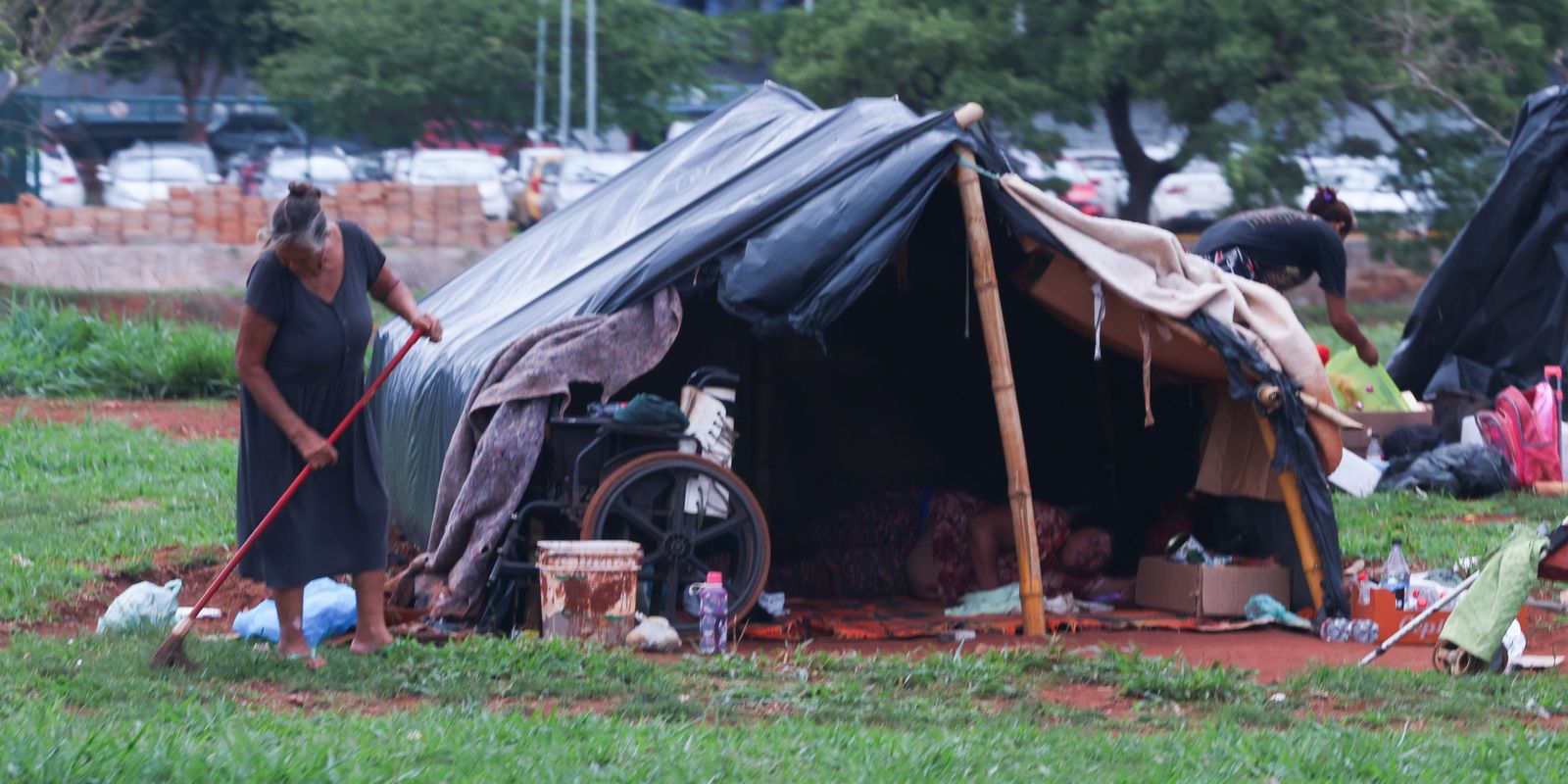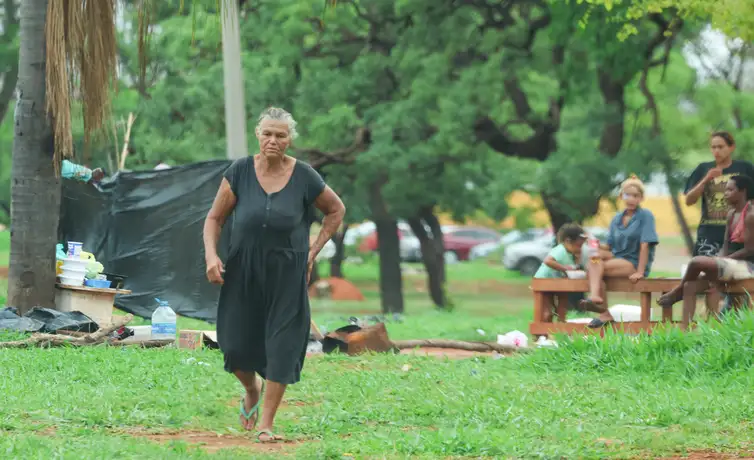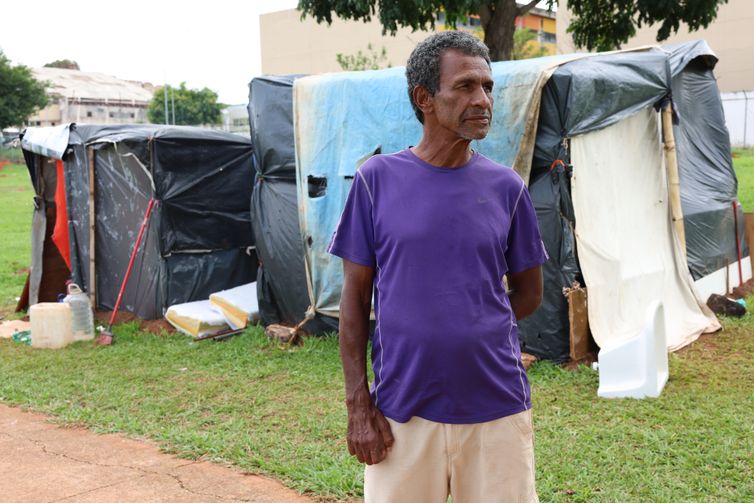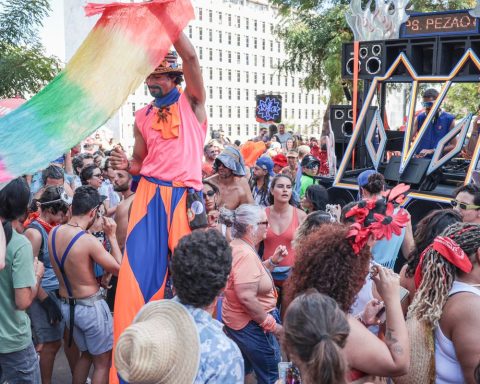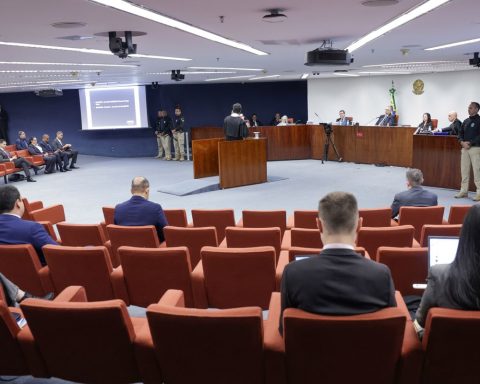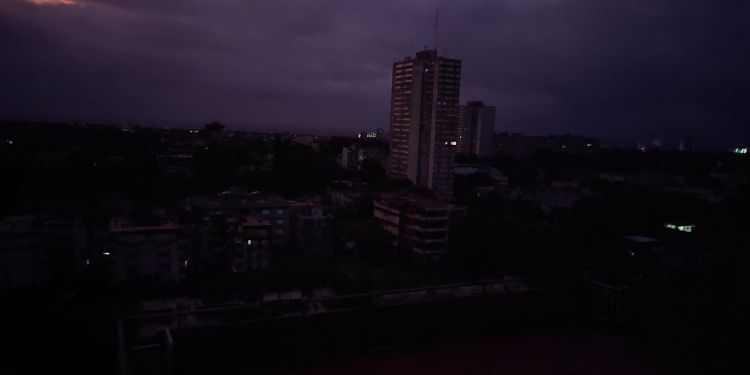A worn black tarpaulin, supported by wood planted in the ground, in a sidewalk area, covers the life of Bahian retiree Luzia Cavalcante, 67 years old. “But being on the street is not my biggest pain. Worse than poverty is homesickness”, he laments. 
With a broom in hand, the woman born in Campo Alegre de Lourdes (BA) sought to remove the dust thrown by cars speeding along an expressway on Asa Norte, in Brasília.
“I sweep the street in front of the house to pass the time. Every year, I prepare my head for All Souls’ Day (2), my worst day of my life.” This is when she will visit the graves of her husband Raimundo, who died of esophageal cancer 28 years ago, and her son João, murdered at age 18, in 2019.
It was for her son’s memory that Luzia spent three days looking for a donation and loan to raise R$3,000 and be able to bury the boy’s body in a cemetery in Planaltina (DF). He had difficulty asking for help because he didn’t know how to write about the pain and need he was going through.
“I think about them all the time. There are people who see us living on the streets and think that we are used to living in pain. I never got used to living without them”, he lamented.
Until the boy’s death, they lived in a “humble” house in the city of Vianópolis (GO).
Grief
But the pain and “other reasons” led part of the family to live in a tent on the street. A survey by the Federal District Research and Statistics Institute (IPE-DF), released last year, shows that the number of people in situations of street in this federative unit is 2,938.
The death of family members is cited as one of the main reasons that lead people to this condition. Throughout Brazil, according to the Ministry of Human Rights and Citizenship, there are 236.4 thousand.
Luzia’s rush involves trying to take care of the other nine children who remain, including the youngest who suffers from profound anemia and cannot walk. The tent where they live was installed close to the public hospital in Asa Norte where the 18-year-old girl is undergoing treatment.
“Tomorrow is the day to go to the cemetery. Monday is to go to the hospital.” Currently, she survives on the Continuous Payment Benefit (BPC), from the federal government, and tries, on the days she returns to Goiás, to cultivate the garden at friends’ houses. She wanted to take more care of the graves where the loves of her life are buried.
Invisibility
Luzia didn’t know, but in the Federal District, where she lives, there is a possibility that vulnerable people may resort to social burial. The Social Development Secretariat ensures that it publicizes the service to the target audience. Official documents are required for the benefit, such as proof of income, which cannot exceed 50% of the minimum wage in the person’s home.
As social service professor Larissa Matos, from the Centro Universitário de Brasília (Ceub), explains, homeless people, even living in urban areas, in full view of the metropolis crowd, are made invisible, including by public policies and society. Thus, they are also made invisible in the situation of mourning.
“The fragility in which they live can further deepen feelings of loss and memories of another moment in life”, says the researcher.
Daily longing
Another Bahian in the capital of Brazil, who defines life as a “daily longing”, is Maria dos Santos, 60 years old. She, who moved from Xique-Xique (BA) to the country’s capital when she was a teenager, says that the loss of her parents at an early age also caused her to lose her home and the direction of her life.
Maria also lives under a tarpaulin, next to a construction site in the capital.
“When they were alive, we had a farm. They are buried in Goiás. I have no way of going there to see. I don’t have money to travel. I even wanted to, but I can’t”, he laments.
Speaking of longing, Sebastião de Lima, 59, from Pernambuco, who lives under a tarpaulin in Asa Sul, says he dreams every day of his mother, who died three decades ago. “Her body is buried there in Olinda (PE). I can’t visit. But I wanted to. She was the person who gave me affection in life. Everything got worse later.” He didn’t go to school and could only work to survive.
He now works with recycling, but has difficulty collecting materials with his hands. The man had an accident 20 years ago while repairing a fence. The following year, he suffered the death of a brother and a 14-year-old nephew.
“They were buried in a shallow grave, but it is somewhere far from here. I just stay in my shack crying and praying for them on the day of the dead.”
